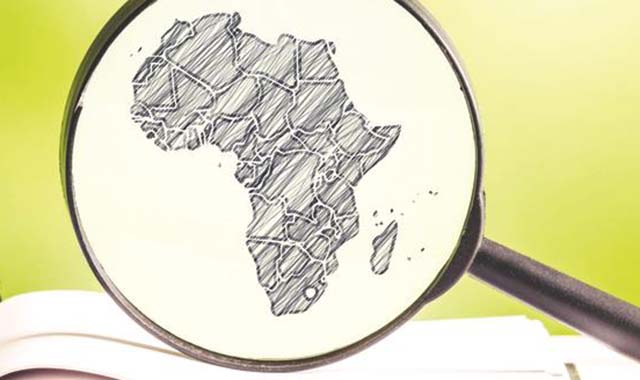Rand Union: A disaster that needs shelving permanently

Bernard Bwoni Correspondent
Adopting the Rand or joining the Rand Union would be a big mistake for Zimbabwe. Well before I go any further, let me start by clarifying the use of the term “white monopoly capital”. The term “white monopoly capital” is being used here to indicate a disproportionate state of affairs in terms of ownership and wealth.
It is being used to denote the extreme end of capitalism relative to poverty. This is a case of two extremes, capitalism represented by one privileged race and poverty represented by one deliberately deprived race.
Zimbabwe is a good neighbour to South Africa, but not part of it. The reality is that the country has no business joining any union whatsoever which puts any form of limit or restraint on her hard won sovereignty.
The argument that is being presented by the pro-Rand Union proponents is without real evidence and needs to be challenged and broken down to its barebones.
Its adoption is a legal, political and economic minefield that is not worth it right now or in the future.
By getting into the Rand Union we will not solve our current cash crisis at all.
The Rand is a currency that is being downgraded by Credit Agencies to sub-investment grades and locally, confidence in the Rand is very low.
Right now, the two most competitive currencies in the Zimbabwe multi-currency basket are the Bond and the US Dollar. The Rand has been in that basket a lot longer than the Bond, but the market has rejected it. It is a fallacy to think that the Rand will address the country’s current cash crisis. If it was going to, it would have done so already. Nothing is going to force its acceptability by the consumer.
The issues we need to be looking at are increased production, increased exports and enhancing confidence in our economy.
As RBZ Governor Dr John Mangudya pointed out; “We have always said that the fundamental problem of this economy is not about currency, but localised production, stimulating exports and discouraging imports of finished products at all costs.”
Those are the structural issues with the economy that Government has been working on prioritising.
The only long term solution which most will try to dismiss outright is the reintroduction of the Zimbabwe dollar or fully adopt the Bond which has proved competitive and the market has embraced.
Joining Rand Union will be the worst mistake the country will ever make.
South Africa will inevitably embark on radical economic empowerment reforms as Zimbabwe did and a backlash from ‘white monopoly capital’ is going to happen. If Zimbabwe was to join the Rand Union it will feel the ripple effects from that fallout without a doubt. Zimbabwe has had its own backlash for the better part of the last 15 years, so why go through it again?
Zimbabwe needs to continue with more regulations such as Statutory Instrument 64 of 2016 to boost domestic production and drastically reduce imports.
The Rand is not one of the most stable currencies in the world. It was only at the beginning of April this year that the Rand was downgraded to ‘junk’ status and it has continued on a downward trajectory.
There is emerging political upheaval in the Rainbow Nation with the white minority in that country seeking to preserve their wealth and the black majority understandably agitating for radical economic reforms.
There is uneasy tension between the two groups. It is highly likely that any attempt to push through with the radical economic reforms will be met with serious reprisals from the white minority.
If Zimbabwe were to join the Rand Union, and South Africa goes ahead with the reforms, any reaction or response from “white monopoly capital” will be felt in Zimbabwe.
It is evident from the massive and morally hypocritical “white monopoly capital” show of solidarity with blacks in South Africa in the recent demonstrations calling for the oust of President Zuma, that any form of radical economic transformation will not be taken lightly.
The truth about “white monopoly capital” is that it only shows solidarity with blacks only when white privilege is under threat.
White monopoly capital in South Africa is not marching because it cares about the disadvantaged blacks in that so-called Rainbow Nation.
This is exactly the same with the whites in Zimbabwe going in droves to join the MDC only when white privilege was under threat. It would be foolhardy to think for one minute that white monopoly capital in South Africa as in Zimbabwe is going to peacefully allow any form of radical economic reforms to equitably distribute wealth in that country.
White monopoly capital does not do sharing, it just plunders, pillages and preserves itself.
If white monopoly capital was genuinely interested in the black masses in South Africa then they should simply hand over stolen land and wealth back to the indigenous black South Africans, who still continue to languish in poverty and disadvantage.
Should Zuma forge ahead with the radical economic reforms, the repercussions will be severe and will be felt even in our own backyard.
In Zimbabwe, the Rhodesians have never and will never shed a tear for the black pain they caused, yet they duck under the cover of local opposition politics to try and preserve their white privilege.
They never wanted a radical re-engineering and re-organisation of the overtly and systemically racist economy they fostered prior to independence.
They were quite happy to lavish in the comfort zone of privilege as long as their interests were not touched or threatened. This is exactly what is happening in South Africa and there will be a massive fallout if radical reforms are initiated.
The Rand, already a highly volatile currency, will suffer. The Bond or the full Zimbabwe Dollar reintroduction is the best way forward for sovereign Zimbabwe. We are not part of South Africa and we have no business belonging to any union whatsoever.
The Reserve Bank of Zimbabwe needs to gain some influence on the conduct of the monetary policy in the country.
Through the introduction of the multi-currency system, the Government to a great extent, gave up control of the money supply which regulates and restricts any stabilising response of fiscal policy to adverse extrinsic and intrinsic unpredictability. The multi-currency system has imposed limitations on the Reserve Bank’s role as the lender of last resort to the banking sector which means local banks are already at a disadvantage and prone to internal and external shocks.
Quantitative Easing is a source for liquidity and without a domestic currency the Reserve Bank will have to look for alternative sources to respond to financial crises. The cash struggles the country is facing are indicative of that.
The Zimbabwe economy has widely been opened to capital mobility, left vulnerable to shocks and Government has its hands tied in terms of flexibility to respond to these shocks.
The Bond Note, as it has already proved, will lessen some of the risks of exposure to the financial and capital shocks.
South Africa is on the verge of going through the same journey that Zimbabwe went through following some very radical economic policies to wrestle control of the economy from minority white control.
Zimbabwe as one of the bigger economies in Southern Africa must be there for South Africa when the fallout with white monopoly capital inevitably does happen.
A shared currency between these two neighbours is a disadvantage to both countries.









Comments